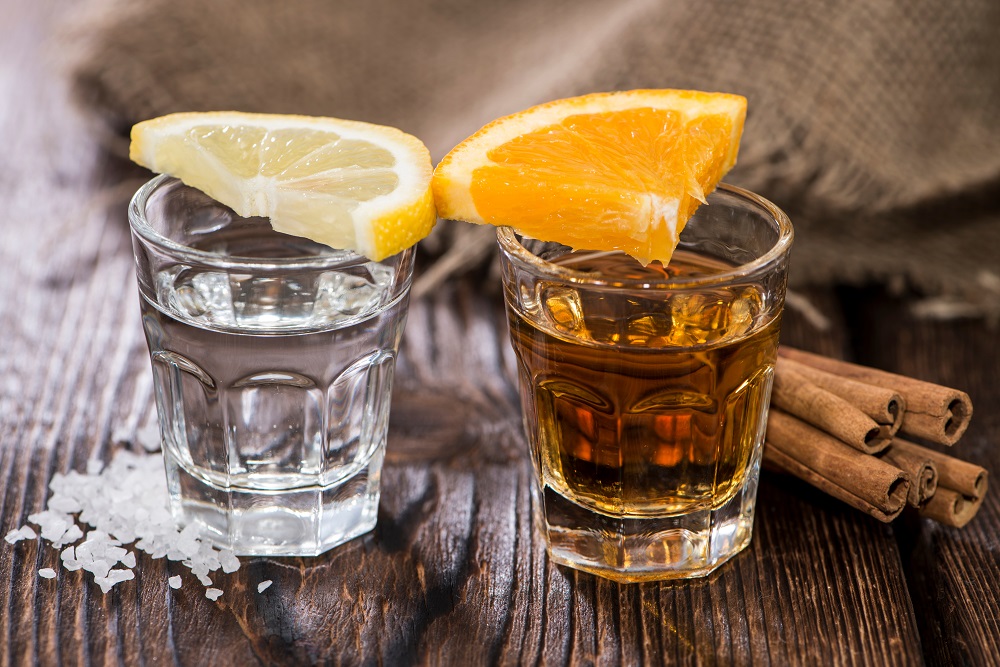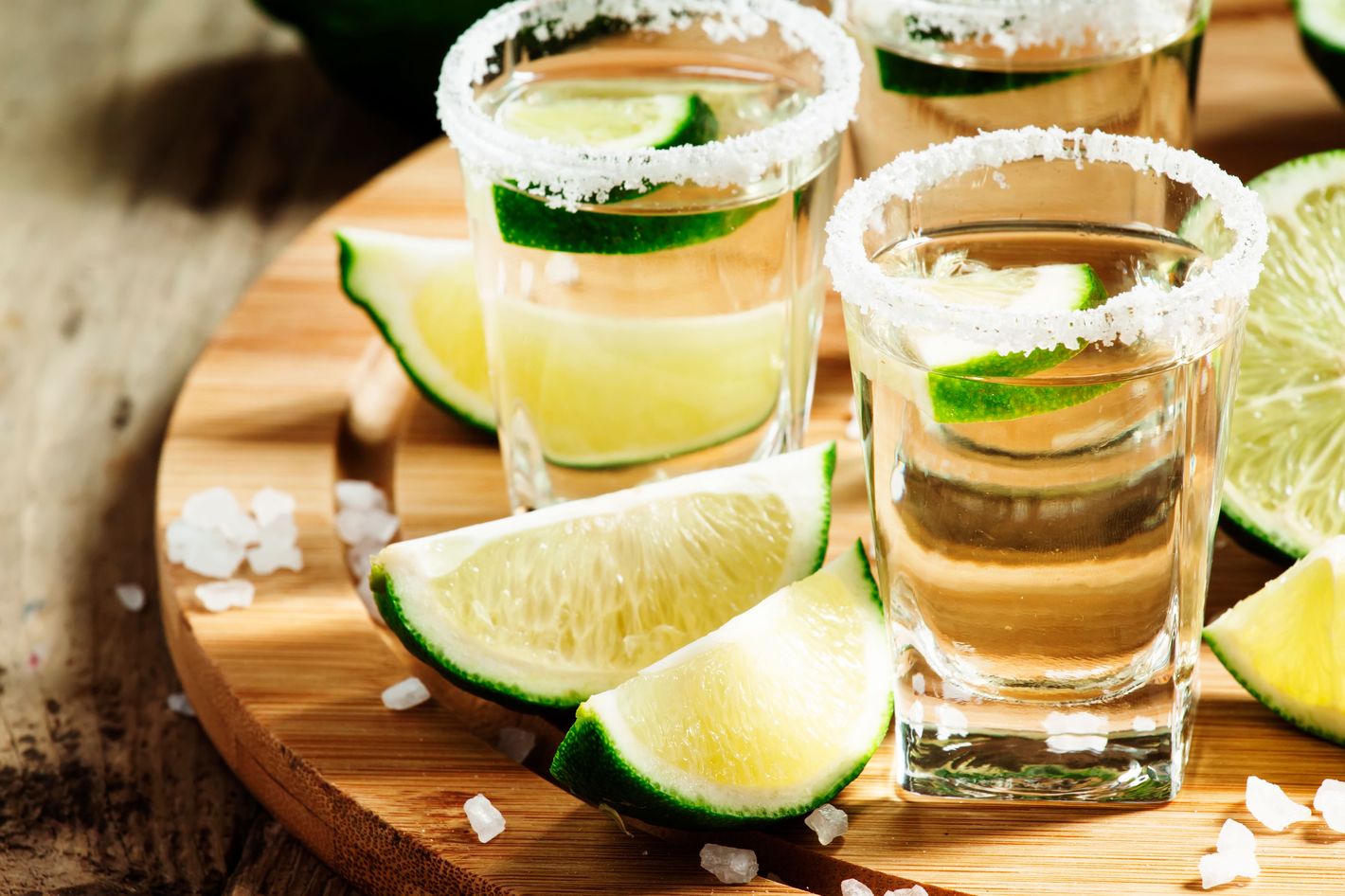Tequila, the fiery spirit synonymous with celebratory shots and vibrant fiestas, often sparks a debate: is tequila an upper? This pervasive myth persists despite scientific evidence to the contrary. Let’s delve into the truth behind this misconception and explore how tequila actually affects the body.
What Is Tequila And What Are Its Effects On The Body?

Tequila is a distilled alcoholic beverage with a unique heritage. Made primarily in Mexico, it takes the blue agave plant as its hero ingredient. This succulent provides the base for fermentation and distillation, resulting in a spirit with a distinct flavor profile.
Crafting tequila is a meticulous process. It all starts with harvesting mature agave plants. These are then cooked to unlock fermentable sugars trapped within their starches. The cooked agave gets crushed, releasing its sweet juices. These juices are then fermented and distilled, transforming them into tequila’s raw form. Finally, the spirit matures in oak barrels, acquiring its characteristic depth and complexity. This aging step, governed by strict regulations, ensures a high-quality final product.
Tequila’s Influence on Body and Mind
Understanding how tequila affects us requires acknowledging its core identity: an alcoholic beverage. Like any alcohol, tequila can have both immediate and long-term consequences.
In the short term, moderate consumption may induce feelings of relaxation and even euphoria. However, overindulging can lead to a series of undesirable effects. Impaired judgment, coordination, and motor skills are common culprits. Dehydration, headaches, and nausea can also arise from excessive tequila intake.
The long-term consequences of frequent tequila consumption paint a more concerning picture. Liver damage, increased risk of cardiovascular issues, and even addiction are potential threats. Responsible consumption and awareness of these risks are essential for safeguarding your well-being.
Understanding Alcohol And Its Classification
Alcohol is a widely consumed substance that impacts both the body and mind. To better understand its effects, it’s important to grasp how alcohol is classified.
First and foremost, alcohol is a depressant. This means it slows down the central nervous system, affecting everything from coordination to mood. This classification applies to all alcoholic beverages, including tequila. Despite misconceptions about tequila being an “upper,” it shares the depressant category with other alcoholic drinks. Understanding this classification allows us to appreciate the history and craftsmanship behind tequila while also acknowledging the potential risks of irresponsible consumption.
Types of Alcohol and Their Impact:
Different types of alcohol can have varying effects. Spirits like tequila, vodka, and rum pack a higher alcohol punch, leading to quicker intoxication. In contrast, beer and wine typically have lower alcohol content, resulting in a more gradual effect. These differences in alcohol concentration influence factors like tolerance, metabolism, and how quickly alcohol enters the bloodstream. Being aware of these variations is crucial for understanding how different types of alcohol will affect you.
Tequila’s Place in the Alcohol Spectrum:
Tequila resides in the “spirits” category of the alcohol spectrum. This means it’s a distilled alcoholic beverage typically containing a higher alcohol concentration compared to beer and wine. Tequila’s alcohol content usually ranges between 35% and 55% (or 70 to 110 proof), placing it alongside other spirits like vodka, rum, and whiskey. However, it’s important to remember that individual factors like tolerance, metabolism, and the rate of alcohol absorption can influence how tequila affects you.
Tequila: Debunking the Myth of an Upper
Tequila lovers, listen up! There’s a common misconception that tequila acts as an upper, giving you a burst of energy. But it’s time to debunk this myth!
Tequila: Just Another Depressant
Despite its association with lively social gatherings, tequila, like any other alcoholic beverage, is actually a depressant. This means its main effect is to slow down your central nervous system. Think relaxation, sedation, and maybe even some impaired judgment (which is why it’s important to drink responsibly!).
Why the Confusion?
So, why is there a myth of tequila as an upper? Here are a couple of reasons:
- Cultural Associations: Tequila is often enjoyed in social settings where people might feel more energetic and outgoing. This can lead people to believe the tequila itself is causing the increased energy.
- Party Drink Reputation: Tequila’s association with partying might make it seem like it provides a boost. However, that feeling is likely due to the excitement of the social atmosphere, not the tequila itself.
The Science Says No
Science doesn’t lie. The key ingredient in tequila, ethanol, is a depressant. It slows down your brain function, not speeds it up. So, the perception of increased energy is more a cultural misunderstanding than a scientific fact.
Comparing Tequila’s Effects With Other Alcohols

Tequila often gets compared to other alcohols for its impact on the body and mind. While personal experiences can differ, most agree that tequila’s effects are similar to other drinks. The key factor influencing the impact is the amount consumed, not the specific type of alcohol. Remember, overdoing alcohol can lead to negative health effects and poor judgment. Therefore, moderation and responsible drinking are crucial for tequila and all alcoholic beverages.
Tequila’s Flavor Profile and Competitors:
When it comes to flavor and production, tequila stands out from other spirits like vodka, whiskey, or rum. Made from the blue agave plant, tequila boasts a unique earthy and vegetal taste. Vodka, on the other hand, is a neutral spirit known for being virtually tasteless and odorless. Whiskey offers a completely different experience with its smoky and oaky flavors. Rum, produced from sugarcane or molasses, has a sweeter, tropical character. Ultimately, the choice between tequila and other spirits comes down to personal preference and what kind of drinking experience you’re looking for.
Alcohol’s Impact on Mood and Behavior:
All alcohol, including tequila, can significantly impact mood and behavior. As we consume alcohol, it affects our central nervous system, altering neurotransmitter levels. Initially, this might lead to feelings of relaxation and euphoria, explaining why it’s often associated with having a “good time.” However, with increased alcohol content, judgment, coordination, and decision-making abilities become impaired. This can lead to mood swings, aggression, and risky behavior.
It’s important to remember that these effects vary depending on individual tolerance, the amount consumed, and the presence of other substances. To drink responsibly, be aware of how alcohol affects you personally.
Health Effects Of Tequila Consumption

Tequila and Moderation: Tequila, like all alcoholic drinks, requires a mindful approach to minimize health risks. Overindulging can lead to immediate issues like dehydration, poor judgment, and accidents. Long-term, heavy tequila consumption can contribute to liver damage, addiction, and other chronic health problems. Prioritize your well-being by being aware of your alcohol intake. If you have concerns, consult a healthcare professional.
Understanding Tequila’s Impact: Tequila’s effects can be short-term and long-term. Short-term, excessive consumption leads to dehydration, impaired judgment, and increased accident risk. Long-term, heavy use can damage the liver, lead to addiction, and contribute to other chronic health issues.
The Key to Responsible Enjoyment: Moderation and responsible drinking are essential for enjoying tequila – or any alcoholic beverage – safely. Learn and follow recommended alcohol consumption limits. Moderation means pacing yourself, avoiding binges, and sticking to reasonable quantities.
Responsible Drinking Practices: Being a responsible drinker involves knowing your limits and how alcohol affects you. Make informed choices about when and how much to drink. Prioritize safety: never drink and drive. Be supportive of those who choose not to drink.
Conclusion
Tequila is not an upper. Despite its association with feelings of excitement and energy, this is a common misconception. Tequila, like all alcoholic beverages, acts as a depressant on the central nervous system. While individual experiences may vary slightly, there’s no scientific evidence to suggest tequila behaves differently than other types of alcohol.
Understanding this is crucial for responsible drinking. Consuming tequila within recommended limits is key to a safe and enjoyable experience. Debunking the myth of tequila as an upper promotes accurate information and encourages responsible consumption practices.
References:
- https://www.delish.com/kitchen-tools/a36958279/is-tequila-a-stimulant/
- https://curamiatequila.com/blogs/blog/is-tequila-an-upper
FAQ About Tequila As An Upper
Q: Is tequila an upper?
A: No, tequila is not an upper. It is a type of alcohol classified as a depressant.
Q: Does tequila make you more energetic?
A: While some people may feel a burst of energy after consuming tequila due to its alcohol content, it is not an issue. Excessive consumption can lead to drowsiness and impaired coordination.
Q: What are the effects of tequila on the body?
A: Tequila, like other alcoholic beverages, can affect the body in various ways, such as impairing judgment, slowing down reflexes, and affecting coordination.
Q: Can tequila improve mood or alleviate stress?
A: While some individuals may temporarily experience a positive mood change when drinking tequila, it is not a reliable method to improve mood or alleviate stress. Excessive consumption can have negative effects on mental health.
Q: Is tequila safer to drink compared to other types of alcohol?
A: Tequila, when consumed in moderation, can be enjoyed responsibly like other alcoholic beverages. However, excessive drinking of tequila or any other alcohol can lead to health problems and negative consequences.

Looking for a bar to make your new local hangout? Look no further than Smokin’ Cues, a hidden gem located in the heart of Stockbridge, GA. At our bar & restaurant, we’ve got you covered when it comes to a great time!
Come hear some great live music, catch some sports, have a few drinks, or just sit back and relax! At our pool hall, there’s always something to do.